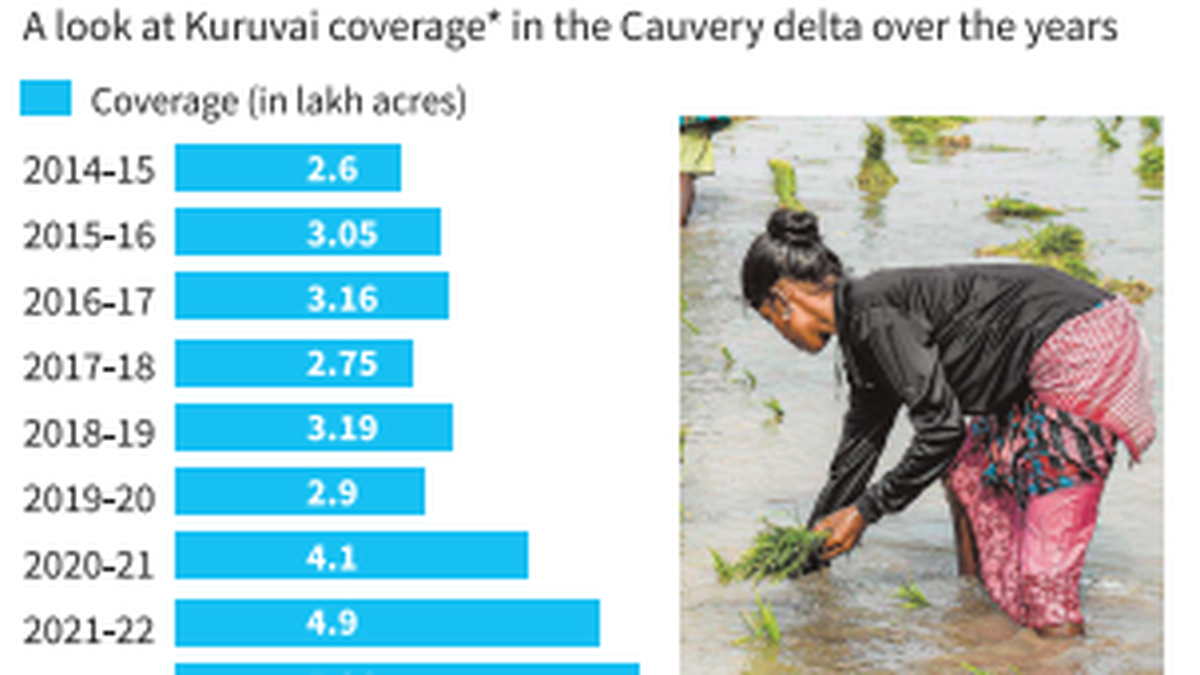A vial of the human papillomavirus (HPV) vaccine Gardasil displayed in Chicago.
The Federation of Obstetric and Gynaecological Societies of India (FOGSI) recently unveiled a comprehensive immunisation schedule for women that provides a list of essential vaccines that adult women should receive, and the recommended frequency of each vaccine. Actor and women’s health champion Kajal Aggarwal unveiled the immunisation schedule at an event in Mumbai recently.
The importance of immunisation and vaccine preventable diseases in women cannot be overstated. A recent report highlighted that women spend 25% more time in poor health compared to men. Vaccination can help change this and safeguard women from vaccine-preventable diseases, contributing to an improved quality of life. The report, jointly written by the World Economic Forum and consultant McKinsey, ‘Closing the Women’s Health Gap: A $1 Trillion Opportunity to Improve Lives and Economies’, showcases how the narrowing of the women’s health gap would allow 3.9 billion women to live healthier, higher-quality lives.
Preventive health care
Jaydeep Tank, President of FOGSI said, “The launch of FOGSI’s updated immunisation schedule for women represents a significant milestone in preventive health care for women. This resource will provide a clear actionable roadmap for both women and doctors, resulting in an increased awareness about vaccination. Immunisation is critical in protecting women against vaccine-preventable diseases and thereby helping reduce its burden in India. I firmly believe that this schedule will make a substantial contribution to the overall health and well-being of women in India and benefit society as a whole.”
Explaining how vaccination is not merely for children and that it is recommended at different points of time in life to prevent or protect against infectious diseases, Hrishikesh Pai, immediate past president of FOGSI and currently trustee (Asia-Oceania) at The International Federation of Gynecology and Obstetrics Trustee, added that adult vaccine coverage in India is almost negligible and this needed to change. “There is an urgent need to sensitise people and health care providers on adult vaccination as it can help save millions of lives in India. Initiatives like the revised immunisation schedule can go a long way in changing the situation and protecting more people in future.”
The tendency of women to play down their own health concerns is a true factor that must be acknowledged and prepared for, when looking at adult vaccination. Actor Kajal Aggarwal said:“As a mother, my priority is to always be there for my children. And that can only happen when I prioritise my own health. Women should take proactive steps to protect themselves from preventable diseases like cervical cancer. But the challenge often lies in not knowing where to start. I urge all women, regardless of age or stage in life, to take control of their health and consult their gynaecologist today to learn more about the right vaccines for them.”
Changes in immune system
A vulnerable period for women is after child birth, when the woman’s body changes. After birth a woman’s immune and hormonal system undergo changes which increase the risk of infection. “For example, 31% of women are at a high-risk of an HPV infection after birth. Thus, vaccination plays a crucial role in a new mother’s health. The immunisation schedule specifically highlights vaccinations that are of utmost importance to new mothers.” explainedMadhuri Patel, secretary general of FOGSI.
In this venture, FOGSI and MSD Pharma have collaborated to raise awareness about women’s immunisation and help prevent vaccine-preventable diseases across India. Priya Ganeshkumar, Chairperson of the FOGSI oncology committee and Co-ordinator for FOGSI Mahila Kavach Kendra, pointed out how studies have shown that increasing physicians’ knowledge and awareness on vaccines significantly improves vaccination rates. “FOGSI has therefore decided to provide their member gynaecologists the FOGSI Handbook on Prevention & Management of Cervical Cancer and has also recently launched FOGSI FOCUS PLUS on Adult Women Vaccination, which will build confidence amongst the gynaecologists to counsel their patients on the available vaccines.” Rehan A. Khan, Managing Director of MSD India Regionsaid tools such as the immunisation calendar, help in understanding what needs to be done to make sure vaccine preventable diseases remain at bay.






